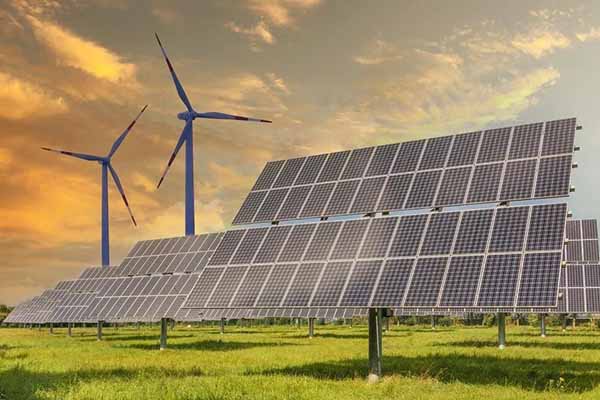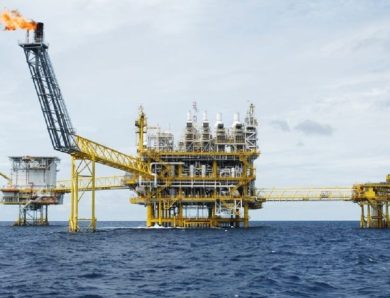
Wind Energy: Transforming Into a Popular Choice for Large Businesses
As the world shifts towards more sustainable and eco-friendly energy solutions, wind energy consultants uk has emerged as one of the most popular choices for large businesses. The combination of technological advancements, cost-effectiveness, and environmental benefits has made wind energy a compelling option for companies seeking to reduce their carbon footprint, lower energy costs, and enhance their sustainability practices.
In this article, we explore how wind energy has evolved and why it has become a preferred energy source for large businesses looking to lead the way in the transition to renewable energy.
The Rise of Wind Energy in the Corporate World
Historically, wind energy was viewed as a niche power source, limited to specific geographic regions with favourable wind conditions. However, in recent years, the development of advanced technologies and improved efficiency has propelled wind energy into the mainstream. Today, businesses across various sectors, from manufacturing and retail to technology and hospitality, are turning to wind power as part of their long-term energy strategies.
Several factors have contributed to wind energy’s growing popularity among large businesses:
Technological Advancements
Over the past few decades, wind turbine technology has advanced significantly. Modern turbines are more efficient, reliable, and cost-effective than ever before. The development of larger, more powerful turbines allows businesses to generate more energy from fewer units, making wind energy a viable option for large-scale operations.
In addition, innovations in offshore wind technology have expanded the potential for wind energy production in regions where onshore wind resources are limited. Offshore wind farms, which are located in bodies of water, take advantage of stronger and more consistent winds, further increasing their efficiency.
These advancements have reduced the cost of generating wind energy, making it more competitive with traditional fossil fuels. As a result, businesses now have access to affordable and reliable renewable energy, which has made wind power a more attractive option for large-scale energy consumption.
Cost Savings and Energy Independence
One of the most significant driving forces behind the adoption of wind energy by large businesses is the potential for long-term cost savings. While the initial investment in wind turbines and infrastructure can be high, businesses that invest in wind energy typically see substantial savings on their energy bills over time.
Unlike fossil fuels, which are subject to price volatility due to geopolitical tensions, market fluctuations, and supply disruptions, wind energy offers a stable and predictable cost structure. Wind energy contracts, such as Power Purchase Agreements (PPAs), allow businesses to lock in fixed energy prices for extended periods, protecting them from price hikes and providing more predictable operating costs.
Moreover, large businesses that generate their own wind energy can achieve a higher level of energy independence. By producing their own electricity, businesses can reduce their reliance on external energy suppliers and mitigate risks associated with energy shortages or price increases.

Environmental and Corporate Social Responsibility (CSR) Goals
As sustainability becomes an increasingly important focus for businesses and consumers alike, many companies are turning to renewable energy sources like wind to meet their environmental and corporate social responsibility (CSR) goals. Large businesses are under pressure to reduce their carbon footprints and demonstrate their commitment to environmental stewardship.
Wind energy is a clean and renewable resource that generates electricity without producing harmful emissions or contributing to climate change. By investing in wind power, businesses can significantly reduce their greenhouse gas emissions and align with global sustainability efforts.
For example, companies like Google, Microsoft, and Amazon have made substantial investments in wind and other renewable energy sources to power their data centres and operations. These companies recognize the importance of sustainability, not only as a way to reduce their environmental impact but also as a way to attract environmentally conscious consumers and investors.
Government Incentives and Policy Support
Government incentives and policy support have played a crucial role in making wind energy more accessible to large businesses. In many regions, governments offer financial incentives, tax credits, and subsidies to encourage the development and adoption of renewable energy. For example, the U.S. federal government offers the Production Tax Credit (PTC) and Investment Tax Credit (ITC), which provide financial incentives for companies investing in wind energy projects.
In addition to financial incentives, governments are increasingly implementing regulations and policies aimed at reducing carbon emissions and promoting clean energy. These policies create a favourable environment for businesses to transition to renewable energy, including wind power, and ensure they comply with environmental standards.
With these incentives in place, businesses can lower the initial capital costs associated with wind energy projects and improve their return on investment. This makes wind energy an even more attractive option for companies seeking to enhance their sustainability practices and meet regulatory requirements.
Why Wind Energy is a Game-Changer for Large Businesses
Scalability and Flexibility
Wind energy is a highly scalable and flexible solution, making it ideal for large businesses with diverse energy needs. Companies can choose to install on-site wind turbines, enter into long-term Power Purchase Agreements (PPAs) with wind farms, or invest in large-scale offshore wind projects. The flexibility to tailor wind energy solutions to the specific needs of a business allows companies to optimize their energy usage and minimize costs.
For example, large manufacturing facilities can install on-site turbines to meet a significant portion of their energy needs, while technology companies can secure PPAs with offshore wind farms to supply their energy requirements. This scalability ensures that wind energy can be adapted to various business models and operational scales.
Positive Public Image and Competitive Advantage
In today’s socially conscious market, consumers, investors, and stakeholders are increasingly looking to support businesses that prioritize sustainability and environmental responsibility. By adopting wind energy, businesses can enhance their public image, strengthen their brand reputation, and gain a competitive edge in their respective industries.
Being a leader in renewable energy adoption demonstrates a commitment to addressing climate change and contributing to a cleaner, more sustainable future. This can lead to increased customer loyalty, positive media coverage, and even access to new business opportunities, particularly in sectors where sustainability is a key differentiator.
Future-Proofing Operations
As the global energy landscape continues to evolve, businesses that invest in renewable energy solutions like wind power are better positioned to navigate future challenges. By transitioning to wind energy, businesses can hedge against the uncertainty of fossil fuel prices, mitigate regulatory risks, and prepare for the growing demand for clean energy.
Moreover, as the world increasingly moves toward decarbonization and net-zero targets, businesses that adopt renewable energy early will be better prepared to comply with future regulations and maintain their competitive advantage in a carbon-conscious economy.
Conclusion: Wind Energy as the Future of Corporate Sustainability
Wind energy has transformed from a niche energy source to a mainstream solution for large businesses seeking to reduce costs, enhance sustainability, and improve their competitive positioning. With advancements in technology, supportive government policies, and growing public demand for environmentally responsible practices, wind energy is now a viable and attractive option for businesses of all sizes.
By adopting wind energy, large businesses can not only reduce their carbon footprint and energy costs but also strengthen their reputation as leaders in sustainability. As the global shift toward renewable energy continues, wind power will play an increasingly vital role in helping businesses future-proof their operations and contribute to a more sustainable world.




